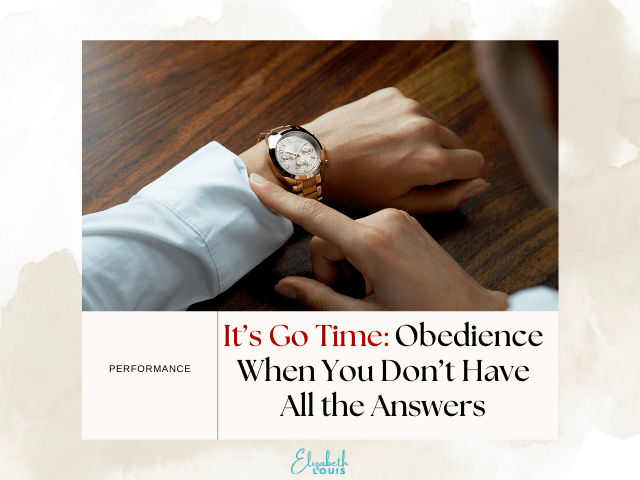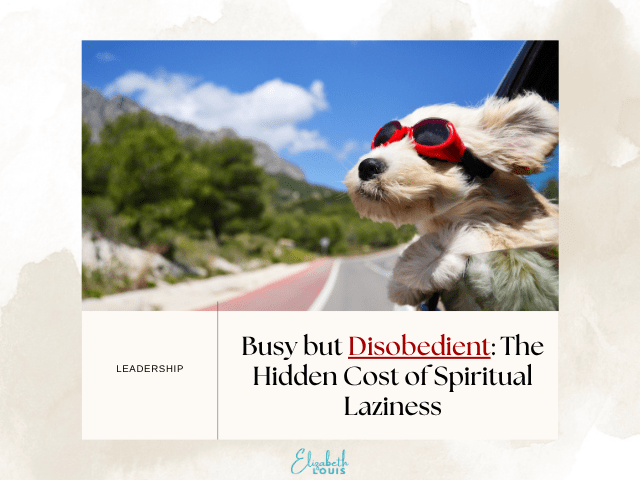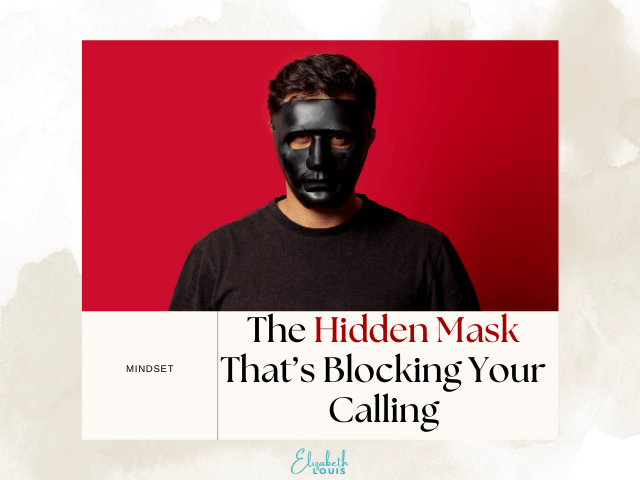
By: Elizabeth Louis
It’s Go Time: Obedience When You Don’t Have All the Answers
As a high-performer who is also a deep thinker, I prefer to know the whole plan before making a move.
But that’s not how God works.
Many times, God tells us to put our faith into action (James 2:26) before we have all the details—let alone any.
He may tell you to move before it makes sense and before you have clarity. The confusion and uncertainty that comes from this can be unbearable for many high performers who love to buy into the illusion of control.
When Obedience Feels Risky
It can feel frustrating and even infuriating, because the desire to please the Lord is strong,
but so is the fear of failure.
God told Abraham to “go” (Genesis 12:1)—and never gave him any specifics.
Can you imagine hearing God tell you to leave your family and country for a land He will show you—in His perfect timing?
I Would’ve Had Questions Too
Being an over-thinker, I know I would have had a lot of questions—at least before I understood God’s sovereignty.
Even with those questions out of the way, I would still struggle to keep God bigger than my fears.
I’d find myself afraid of messing up or going in the wrong direction.
The Beauty of God’s Redemption
Recently, I’ve learned that even when we mess up,
God is so good that He redeems our mistakes and uses them for His glory (Romans 8:28).
In fact, messing up often draws high performers closer to Him and helps us understand the concept of blind trust on a whole new level.
The Book I Didn’t Know Was In Me
In the last few months, I’ve had two people with the gift of prophecy tell me:
“There’s a book in you that God wants you to write.”
My response?
“Oh great. Could He tell me what this said book is? Because I feel empty inside.”
Choosing Faith Over Clarity
But my desire to serve God with my obedience is stronger than my doubt.
So, like Abraham, I choose to put my faith into action.
Every morning, I wake up and write.
Most of it feels like utter crap and garbage.
I have no idea what I’m saying or what my point is.
But I believe—and God’s Word affirms—that faithfulness in the small things leads to clarity in the big.
🔎 Reflect on where God has you today
What is one thing you can start to act upon that God has called you to do?
It’s okay if it doesn’t make sense.
God cares about your heart and character.
Show Him you are a good steward by showing up to do what He has asked of you—the best way you know how.
Want to renew your mind like a true Kingdom Champion?
Grab the free Champion in Christ Mindset Devotional—a bold, scripture-based guide to help you think, lead, and live from your identity in Christ.
👉 Download it here and start shifting your mindset today.


